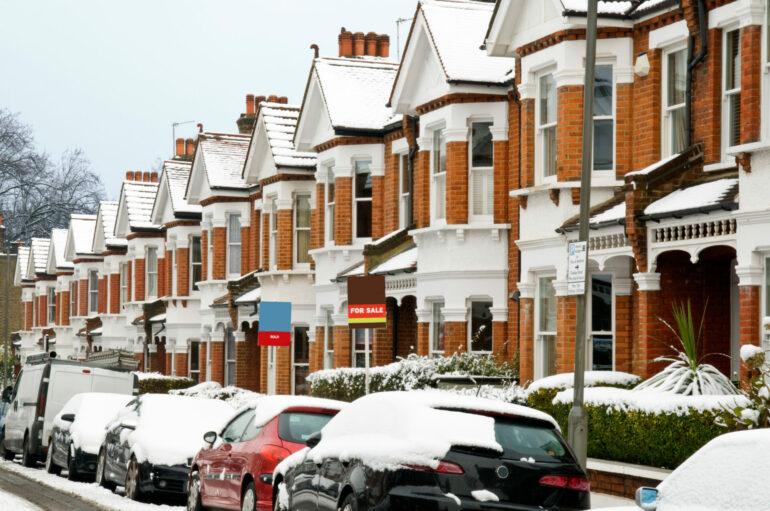In December 47% of respondents to the Building Society Association (BSA) Property Tracker said they did not agree now was a good time to buy a residential property.
This is down from 52% in September. Of the rest of the respondents 14% agreed that it was a good time to buy, and 16% said ‘don’t know.’
Almost half (49%) of people thought house prices would fall over the next 12 months, and just 16% thought they would rise.
Some 70% of respondents were worried about rising energy prices. This was mentioned by 72% of those with household incomes of up to £50k and 62% of those earning more than £100k.
Affordability of monthly mortgage payments was the main barrier to property purchase, cited by 66% of people.
For over half (53%) their biggest concern was about raising a deposit. Access to a large enough mortgage is the third biggest barrier, selected by almost half (45%) of the respondents.
When asked about affordability of monthly mortgage or rent payments over the next six months, the vast majority (87%) of mortgage borrowers are not expressing concern about keeping up with their mortgage payments. However, renters are less confident.
Paul Broadhead, head of mortgage and housing policy at the BSA said: “Whilst several house price measures are now showing modest price falls, the significant increases over the last two years, alongside the spiralling cost of food, fuel and energy, means mortgage affordability for those wishing to buy a property is likely to be more difficult now than it was 12 months ago.
“I expect this, and raising a deposit, will remain key barriers to homeownership for some time to come, with many potentially having to lower their ambitions on the property they can consider buying.
“It’s encouraging that almost nine in ten homeowners are not expressing concern about keeping up with their mortgage repayments, and we’ve not yet seen any increase in borrowers with mortgage arrears.
“This is likely to be because around 80% are on fixed rates meaning it will take time for higher mortgage costs to be felt by many. This will not be the case for renters and therefore it’s not surprising that they are less confident about meeting their housing costs.
“Whilst the indicators suggest low confidence in the housing market, there is not ‘one market’ and the impacts will be felt differently depending on individual’s circumstances, whether they are regional or personal.
“In general, there still remains an imbalance between the supply and demand for properties across most areas of the UK, which I expect will keep the market moving, albeit at a slower pace than we’ve seen recently.
“Finally, it’s worth noting that lenders are sensitive to the rising number of people facing a squeezed household budget and have teams who are well trained and experienced in providing tailored support to those who are struggling.
“Anyone who is worried about their finances and ability to pay their mortgage should therefore get in touch with their lender or a debt adviser as soon as possible.
“They will provide a safe space for a confidential, non-judgmental chat and will do everything possible to help each borrower with options based on their own personal circumstances.”
Helen Morrissey, senior pensions and retirement analyst at Hargreaves Lansdown, added: “There’s little festive cheer to be found in the housing market right now with the BSA’s latest property tracker, finding sentiment close to all-time lows.
“After years of flying high, the market has taken a real bruising with rising living costs and the threat of recession putting a stop to peoples’ plans to buy that dream home, while the prospect of falling house prices mean many people are putting off getting their house on the market.
“Added to this, the mortgage rate turmoil experienced in the aftermath of the mini-Budget scared many people off taking the plunge as they wait to see if rates will come down before they take a chance. After years of low rates, mortgage payment affordability is now the main barrier to property purchase – far more so than the traditional barrier of raising a deposit.
“The data shows the difficulties homeowners themselves are facing in meeting their day-to-day basic costs. Energy prices were a major worry for people regardless of salary level – it’s something affecting everyone while rising food prices are also of concern.
“This will no doubt have knock on effects in that if you are struggling to meet these costs, you are very unlikely to be able to save. With no sign of these pressures easing any time soon, and so very few people thinking now is the right time to buy, we are unlikely to see any real thaw in sentiment.”




